Published Oct 17, 2023
A Major-General in Space Saved This Earthly Child From Bullying
Gilbert, Sullivan, and Beverly Crusher showed this bullied child a future where she belonged.
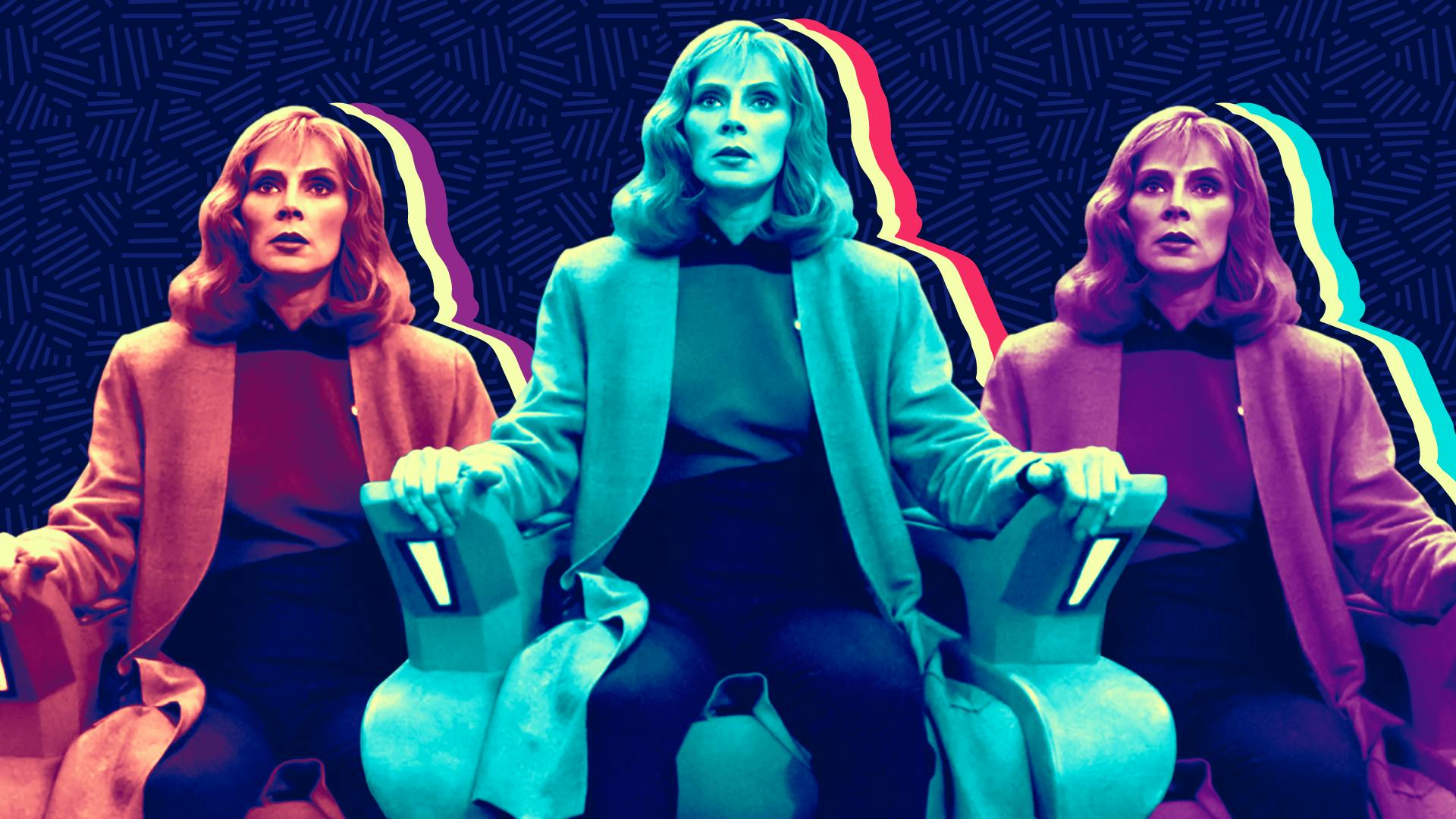
StarTrek.com
My childhood playmates were Gilbert & Sullivan. My family and I saw every one of their operettas performed within a 4-hour drive, singing along to the soundtracks all the way.
You can imagine how popular this made me at school.
Adults told me that teasing is normal, or propagated the damaging lie that boys tease you because they like you. I just retreated. I put on a stone face, and read books during recess, and tried to be small. The only place I felt like myself was in the theater and even there, loving Gilbert & Sullivan more than Grease or West Side Story was not the norm.
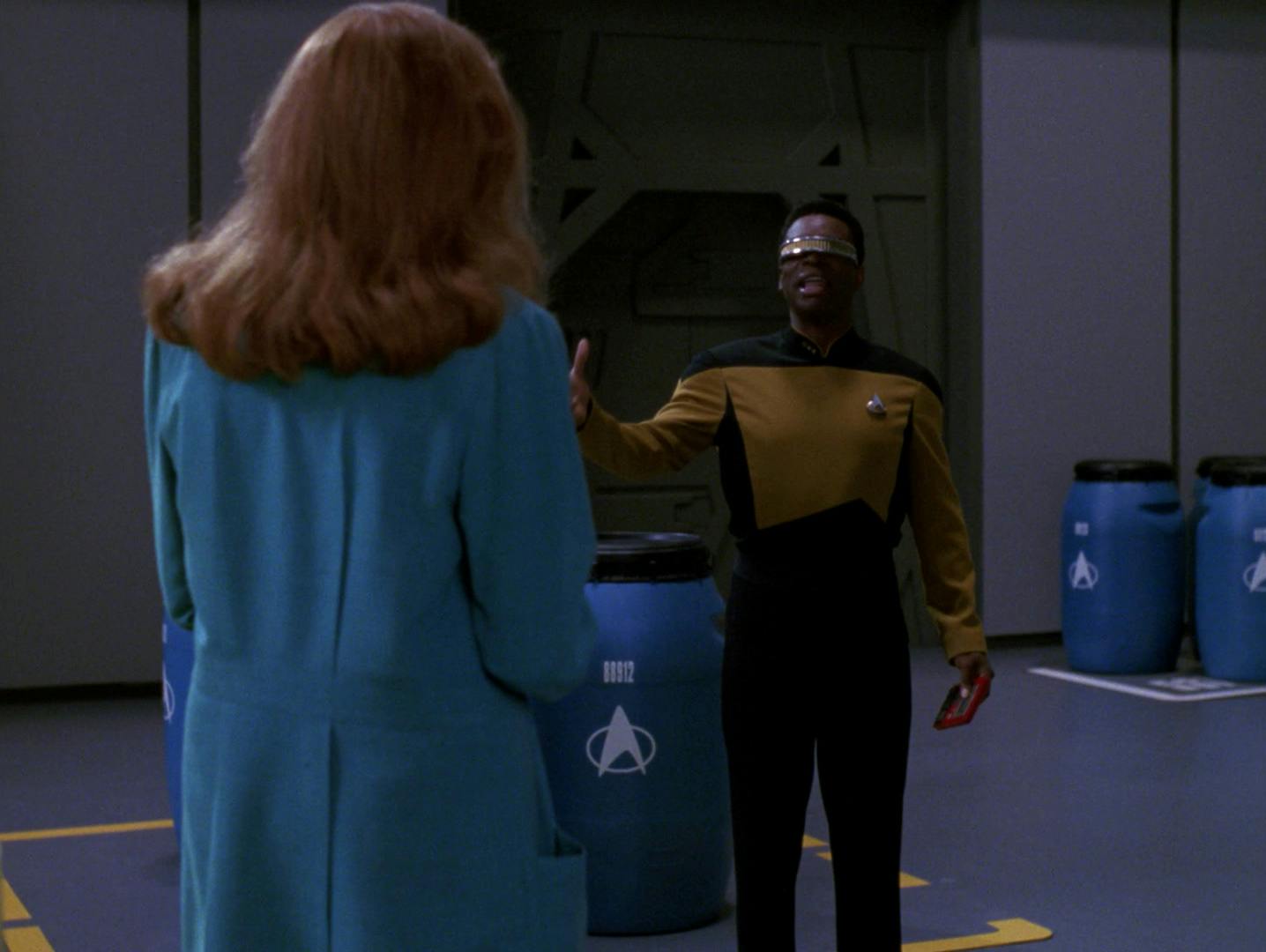
"Disaster"
StarTrek.com
Enter . More specifically, the moment in Season 5 when Dr. Beverly Crusher coaxed Geordi to sing “Modern Major General” to audition for her Enterprise production of Pirates of Penzance. He barely eeks out the first two lines before the “disaster” of the episode began to unfold, but that was enough to perk my 12-year-old ears. Those few seconds on-screen showed me a world where being the very peculiar kind of nerd who loves patter songs is also the kind who could be a doctor on a starship.
I already had an affinity for Dr. Beverly Crusher. I loved how she demanded to be taken seriously when everyone around her was disappearing in Season 3. I loved how she encouraged the crew to expand beyond their comfort zones as their resident drama director, and even saw Barclay's worth when others would dismiss him. She shared her own stories of being bullied as a child, and later in life when she turned away from her nickname “The Dancing Doctor,” which only drew me closer to her character.
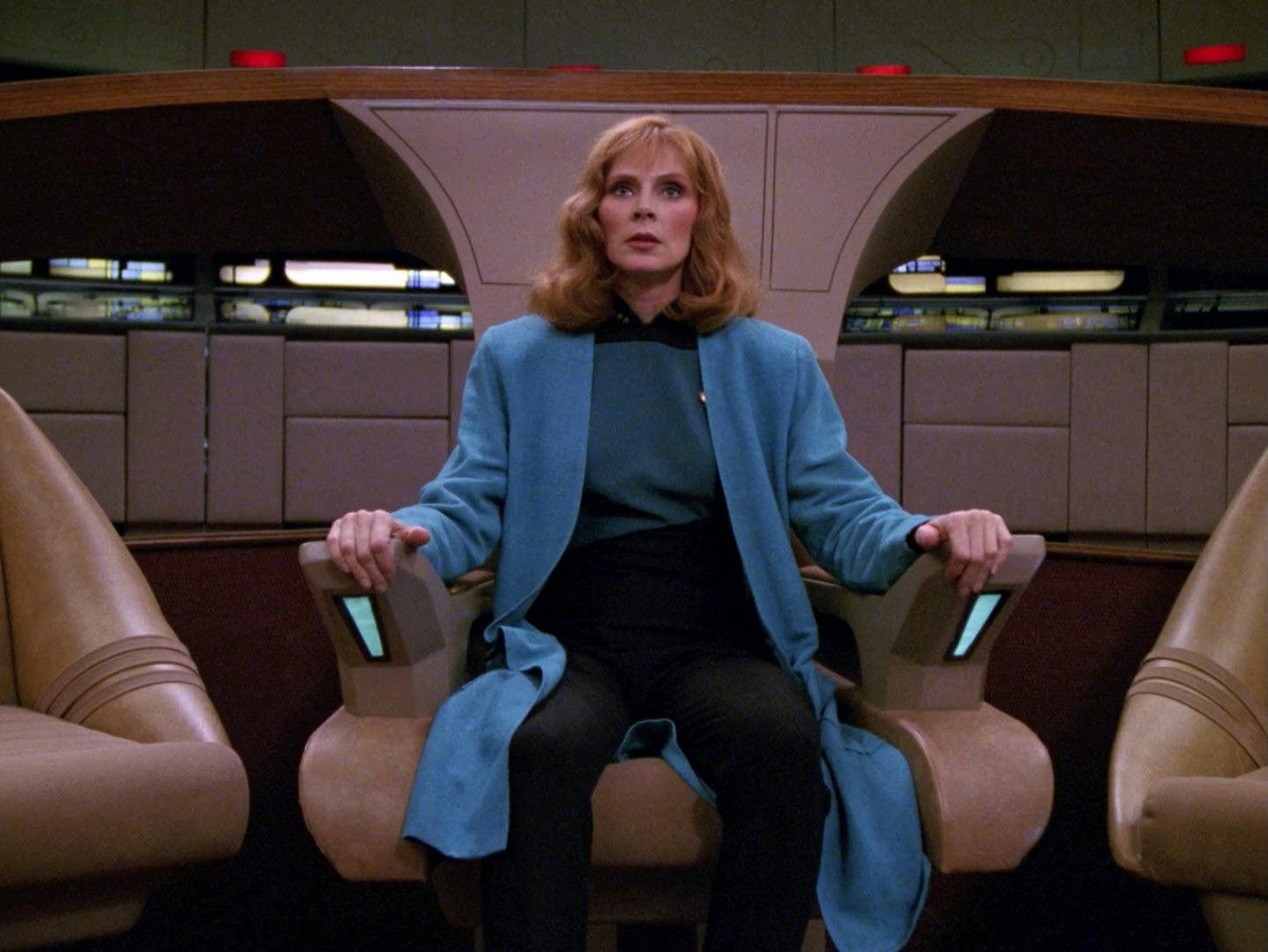
"Remember Me"
StarTrek.com
It wasn’t just that they had theater as a character and story device that appealed to me; TNG’s specific use of Gilbert & Sullivan hooked me. Any TV character who understands Shakespeare enough to recite him is treated with respect. Give that same character a few lines from “Three Little Maids From School” and she’s not just a nerd, but an outcast among the nerds.
Popular culture had told me my whole life that merely knowing what a patter song is, nevermind having all the words on the tip of your tongue, was a punch line and not a positive personality trait. Gilbert & Sullivan are sprinkled throughout TV and film, but mostly in a mocking fashion. Their influence spread throughout the American musical theater scenes, but as early as the 1960s, they were shown as a joke. In 1968, a tenor auditions for The Producers’ Broadway show with The Mikado and is promptly dismissed for his choice of material. The original Batman, played by Adam West, sang “I’m Called Little Buttercup” under mind control, supposedly because he would never admit he knew those words otherwise. In Isaac Asimov’s I, Robot, the title character quotes Gilbert & Sullivan’s popular tune while malfunctioning.
It wasn’t until later in the 90s that you got characters on The Animaniacs and Sideshow Bob singing the entire score to Pirates of Penzance, a technique Bart used to stall his murder since Sideshow Bob couldn’t possibly refuse the request. It would be years before we’d watch Picard and Worf stall Data with H.M.S. Pinafore in the movie , see Aaron Sorkin masterfully weave references into mundane politics talk on The West Wing, or see how Babylon 5 upheld the tradition of using Gilbert & Sullivan to irritate their characters. Earlier in time but later in production, Rebecca Romijn’s character Number One inserts “Modern Major-General” into the Short Treks episode “Q&A.”
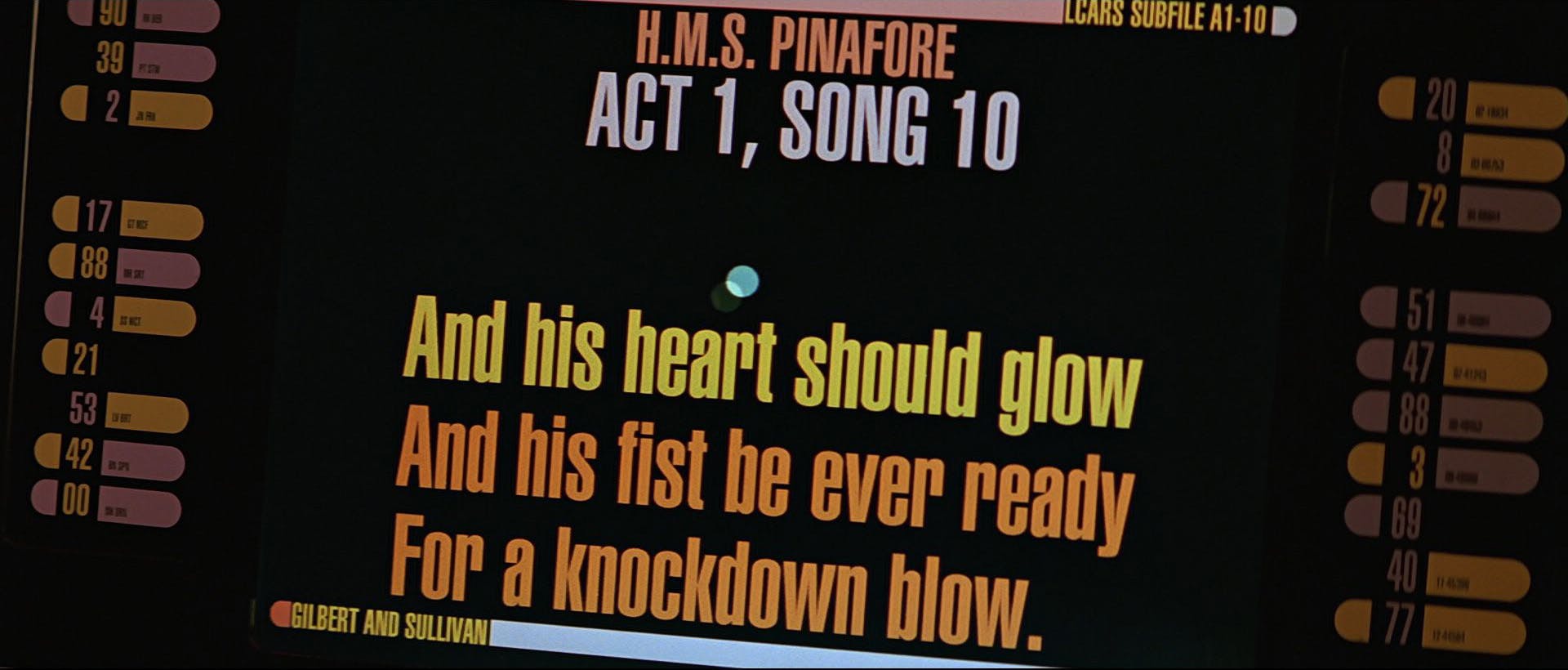
Star Trek: Insurrection
StarTrek.com
The fact that TNG acknowledged Gilbert & Sullivan — and didn’t use it as a dig at Dr. Crusher’s expense — gave me a vision of myself that I’d never quite seen before that October night in 1991. It showed me a future where, for all my quirks and puns and patter songs, I could belong. I could prosper. If Gilbert & Sullivan persisted into the 24th Century, and someone as accomplished and intelligent as Beverly Crusher was into them, maybe there was a place for me?
I realized that I had internalized how popular culture treated fans of Gilbert & Sullivan. I even joined our relatives in teasing my father, who still owns the original albums he had bought in high school and brought me to all these productions. Then came Geordi, a man who often feels different from the other crew members, whose best friend is an android, and whose major love interest a hologram of his scientific idol. In the year 2368, Geordi rattles off the first lines of “Modern Major-General” begrudgingly, but he knows them. It meant even more that someone I admired as much as Dr. Crusher would direct Pirates of Penzance on the Enterprise.

Grossmith attempts to cheer up D'Oyly Carte after the failure of the last Gilbert and Sullivan opera, The Grand Duke
Alfred Bryan, 1899 Entr'acte Annual (PD-US)
How fascinating too that in a presumably utopian society, humans still found worth in the words of those who argued against societal and class issues while comfortably living inside of them. For a future without poverty or class systems, they still enjoyed stories of lovers breaking with convention to marry. Even as such strict enforcers of The Prime Directive as the crew of the Enterprise could be, they persisted with stories about meddlesome, tiresome power structures who really only mucked up things for the people they ruled. (Presumably they also found a way to adapt The Mikado into a less problematic production, or perhaps just dropped it from their Starfleet repertoire altogether.)
After seeing this brief moment between Crusher and La Forge, I took performance much more seriously. I lived for rehearsal. I lived for the nights of telling stories and getting into the skin of other people. I might mess up, I might not get the part, but there were always people there to help me. They were always there to laugh, to hug, to sing, to dance, to cry, and to encourage me to push beyond what pop culture told me I could do and find the better person inside a scared child.
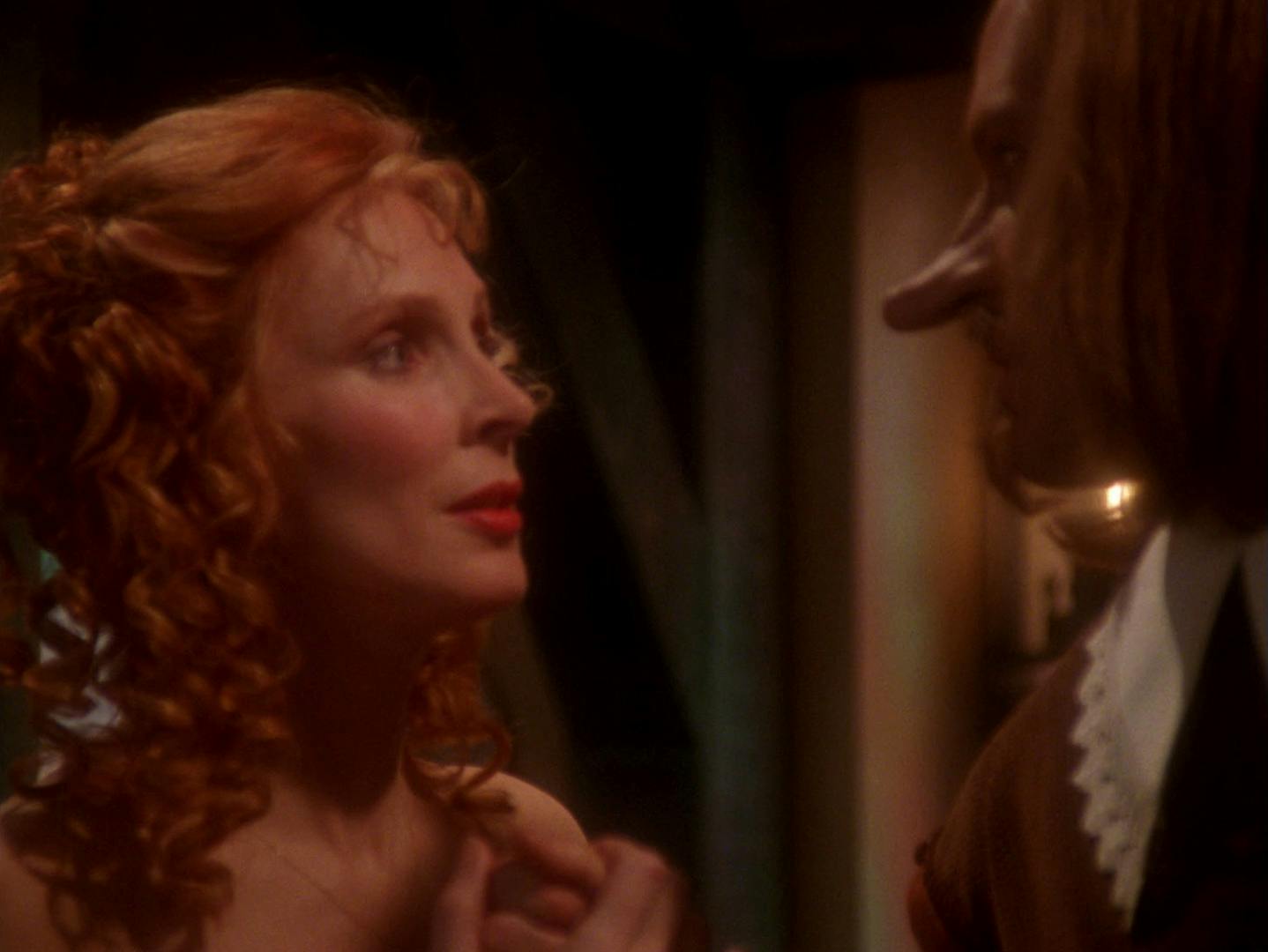
"The Nth Degree"
StarTrek.com
I learned to shield myself with imagination. My best friend from my family’s community theater - who didn’t go to my school - said she had no idea that I was teased so much. She had looked up to me even though we were the same age because all she saw was how much self-esteem I had. Theater had become my holodeck.
It took Dr. Crusher and the crew of the Starship Enterprise to treat something I loved with respect and not as the butt of a joke, to say that my path was okay. My journey was valid. My existence was worthy. Then, now, and in the future.





